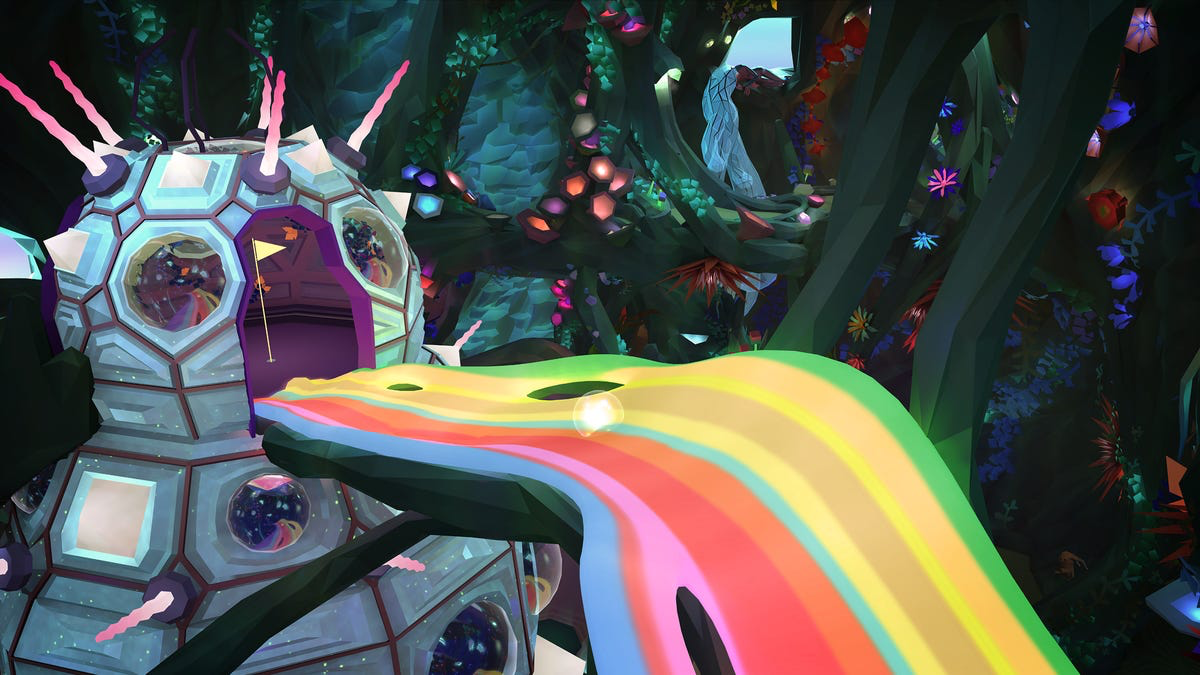
This week: an LA theatre company starts to come into their own, two key Punchdrunk collaborators stand up their own work in London, and the two best VR game development teams drop new magic into the headset realm in the form of Mighty Coconut’s collaboration with Meow Wolf for Walkabout Mini Golf and Resolution Games’ Racket Club.
Let’s get into another fantastic trip through the immersive cosmos with the Review Crew.
Looking for more to see and do? Last week’s edition has IRL games to play in London & LA!
Still need more? Search the latest listings near you at Everything Immersive!
Are you a creator who looks upon these reviews with envy? Okay, the positive ones, at least? Then you might want to check out our UPDATED How To Get Covered By NoPro guide.
Want to get listed in our newsletter and have your event shared with our social media following? Submit a listing to Everything Immersive.
Keep No Proscenium free for all by becoming a Patreon backer today!
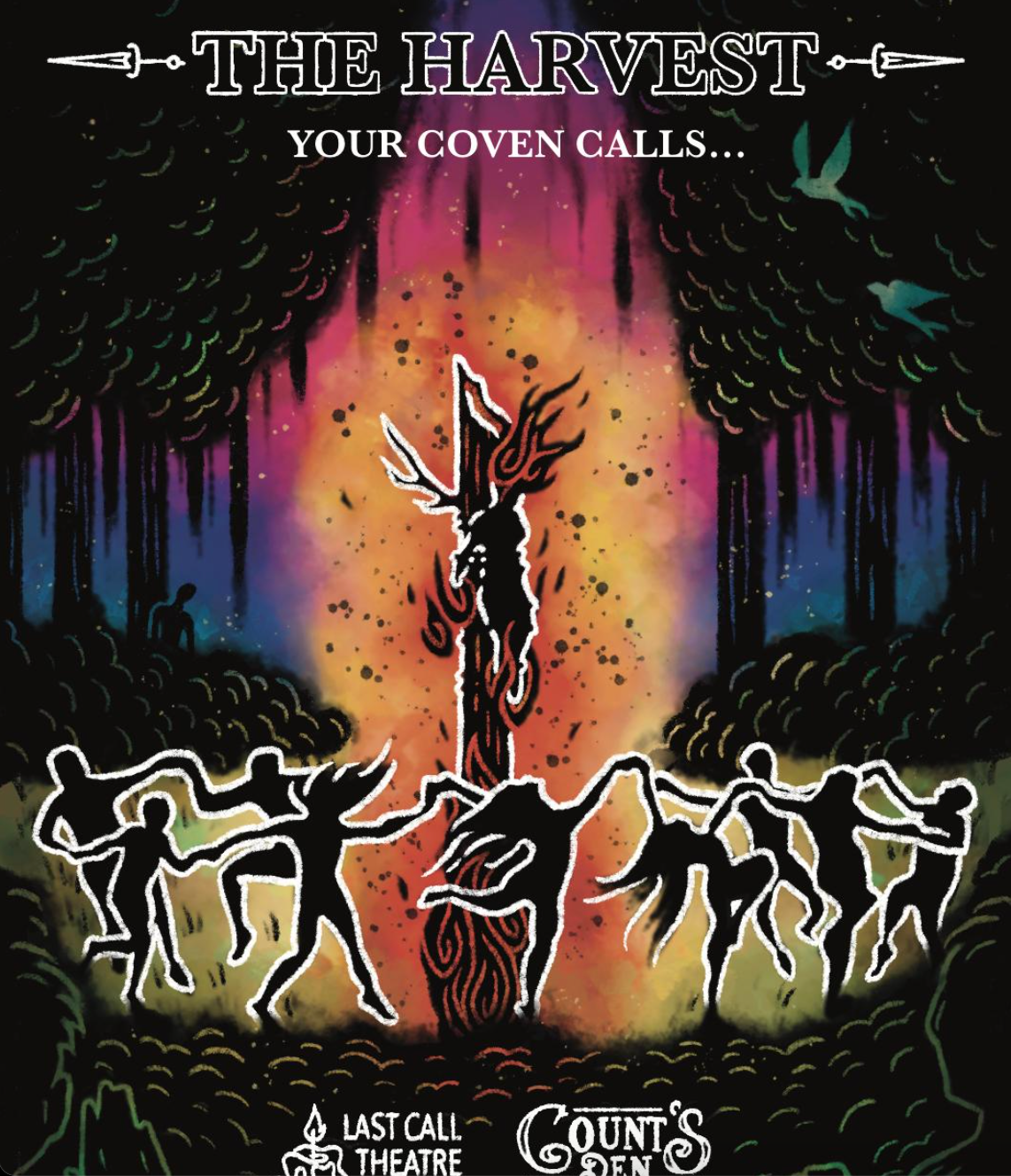
The Harvest — Last Call Theatre
$60-$80; Los Angeles, CA; Through Saturday December 16th
Last Call Theatre continues its remarkable streak as far and away the most prolific immersive company in Los Angeles operating today with The Harvest, their fifth production in eighteen months. Its dizzying signature format of densely-plotted interpersonal quest-based interactivity is in full force in what is perhaps their most personally involving and emotionally resonant work to date, showing a now veteran company that continues to mature and push itself to greater artistic heights.
The mysterious town of Windsor Grove, isolated from the outside world for one hundred years, invites you within its borders to join in the merriment of its annual harvest festival. There are politicians eager to make a good impression, young lovers eager to profess their undying devotion, and artisans and scholars curious to hear of what advances the outside world has made since the gates were last open. The jocularity comes to a screeching halt when that most dreaded accusation of witchcraft is levied against one of the citizens, and the impartial visitors are implored to aid a townsperson of their choice in a series of overlapping investigations that gradually reveal a community wherein old resentments mixing with ancient malevolence threaten to rip the tenuous equilibrium of this quiet hamlet asunder– unless you and your fellow visitors can show them a better way.
All Last Call shows adopt a classic genre within which to set their stories, The Harvest being a kind of unworried fusion of The Village and The Witch clearly meant to be evocative of the Salem Trials, but while past productions perhaps leaned into the high concept trappings they employed, be it mafia posturing, post-apocalyptic direness, or sci fi babble, at the expense of deeper characterization, The Harvest uses its puritanical pastiche as a backdrop to explore the various familial and romantic relationships of the town’s citizens and makes the success or failure of those connections the driving force of the narrative that leads us to the more fantastical elements, rather than the other way around. This allows us to buy into the characters as people with relatable goals to root for rather than arch stereotypes filling out the stock roles the story requires. A greater focus on their desires and vulnerabilities makes for an altogether more engaging experience; their successes more elating, their failures more crushing, and it motivates us to try even harder to see our chosen companion through to the best of the countless possible endings. This, complimented by the company’s strongest effort yet in the area of general stagecraft, costume, and lighting, add up to their most satisfyingly theatrical product to date.
After the pyre had been lit and the show had reached its conclusion, the actors lingered, affably chatting out of character with the participants they had been working with all night about what they had just shared. How surprised they were to have reached the ending they had with our audience that night. That even halfway through the experience cast members had assumed they were headed towards one conclusion but were amazed that things had shifted so decisively so as to reach the outcome we had. One actor in particular could be overheard noting at the choices they made in the moment when phrasing their closing monologue, admitting that it wasn’t the one traditionally associated with the ending reached, but they felt that, more than simply what tasks were completed in what order to get the plot to A, B, and C, it was just as much what the participants who had stayed with them all night said to them, the conversations they had, the advice given, that in the performer’s judgment had truly reached their character, moved them to change, and in so doing, changed the story for us all.
It is Last Call’s full embrace of this unforeseeable X factor, treating their visitors not merely as interchangeable variables moving the story along an unseen and inflexible flowchart, but the spark of creation that weaves the disparate threads of the story together into a one of a kind patchwork that is as surprising and delightful to the performers as it is to us. Every time I leave a Last Call show I find myself more and more impressed by the mystifying alchemy on display– how they can create this world that can feel so loose and spontaneous, reactive to every choice I make, while clearly built on a positively byzantine framework, and then start from scratch and bring us something entirely new at a seemingly inexhaustible pace. And with the promise of a new production already poised for spring on the horizon, enticingly hinting at a piratical mode this time around, Last Call Theatre’s creative wellspring has clearly yet to be sapped. Plenty of magic still to come.
— Chris Wollman, LA Correspondent
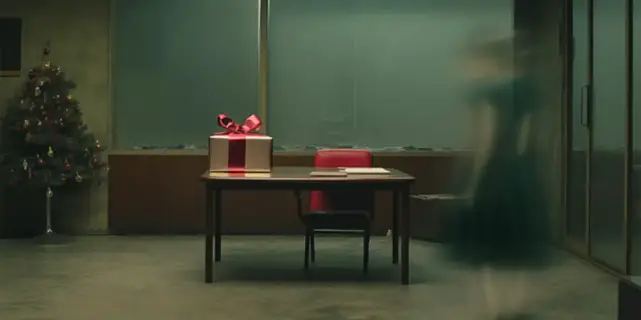
One Night, Long Ago — Kath Duggan and Hector Harkness
£15; London; through 22 December (sold out)
I had expectations, and I was wrong. That’s perhaps the first thing to say about One Night, Long Ago, the new production causing quiet excitement amongst immersive theatre lovers, due to its connection with Punchdrunk, having been created by two of its best-known collaborators. As a Punchdrunk fan myself (I adored The Burnt City), I was hoping–and half-expecting–some of their signatures. Namely, high drama and insane production values, a sense of vastness, and an open world. I got none of what I was expecting, but what I did receive was, quite simply, wonderful.
One Night, Long Ago, is an intimate show, with you and roughly twenty other guests led into one of the most unromantic spots in London–an elderly office building near the Houses of Parliament. You’ll be led up a dingy staircase, and seated in rows, with a glass wall separating you from what you are about to see.
I don’t want to give too much away, but what follows, through the actions of a single, wordless actor and an audio presentation accompanying, is effectively a tour of someone’s “mind palace.” You, the listener, will be introduced to seemingly mundane objects, in a seemingly mundane setting, and learn their significance. But…wait a minute… it looks like there might be some unexpected intrusions into this particular mind palace. And now that we get to it, what are you doing here, anyway? While the show is not immersive in the way that something like The Burnt City is immersive (the audience remains seated, and does not move or speak), it would be wrong to say you do not have a role in this winter’s tale.
One Night, Long Ago, bills itself as a Christmas story, and I suppose it is, in a way. But more than that, it’s a love story. To quote the show itself, it is small and beautiful, and in a mere 45 minutes, tells something complete, and sweet and sad and lovely. The audience left quietly. There was another showing after ours, but not one person said a word to those waiting in the lobby. And when I wandered onto the waiting winter street, the streetlights seemed to glow a little brighter.
Get No Proscenium’s stories in your inbox
Join Medium for free to get updates from this writer.
SubscribeSubscribe
–Ellery Weil, London Correspondent
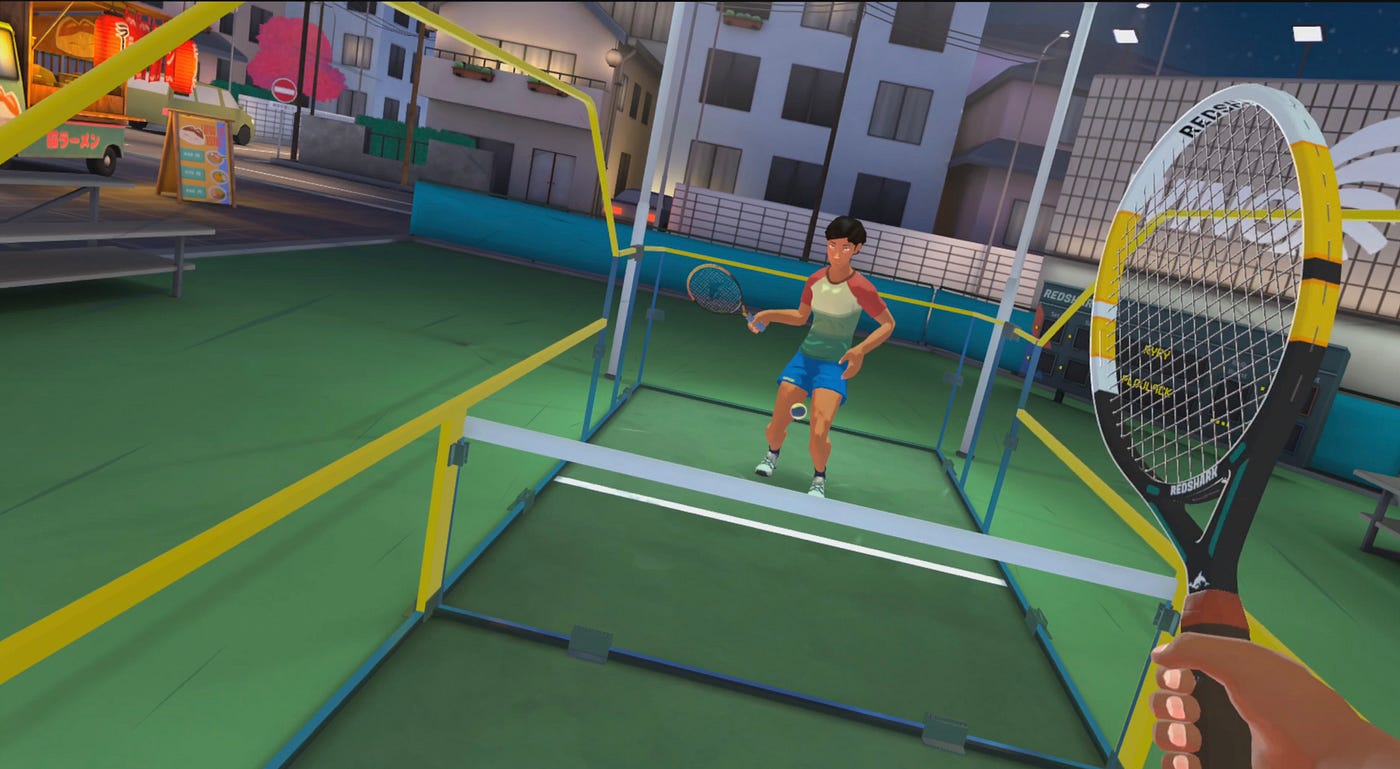
Racket Club — Resolution Games
$24.99; Quest, Pico, PCVR; Release date 12/14/23
FIRST IMPRESSIONS — Not a full review.
Maybe I shouldn’t have started Resolution Games’ Racket Club for the first time at 11:30 at night on a Monday. Mostly because I suck at it. Which doesn’t mean it’s bad, oh no. I just suck at this. For now. But maybe not for long?
So far I’ve only had a chance to play against bots in both tutorial and ranked single player tourneys. Which I’m glad exist, because playing multiplayer game in pre-release can be pretty lonely to impossible. The game doesn’t come out for a few more days.
Resolution, who we love for Demeo and it’s younger sibling Demeo Battles, has come up with a VR racket game that blends tennis, the very popular pickleball, and the game that everyone on 80’s TV shows were always playing: squash. That’s the one where you bounce the ball off the walls as well as the floor.
Some of the constraints of modern VR add a touch of frustration. My playing space isn’t quite big enough to feel truly comfortable moving the way I want to in the game. And this is definitely a game where you want to MOVE. That might be a dealbreaker to some.
Resolution has dealt with this by making the playing spaces smallish. Which means having more controlled movements and really using the walls to angle shots. Something I’m not particularly good at. And the field of view in a Quest 2 (which is what I’m playing in) doesn’t help when it comes to tracking balls just at the edge of one’s peripheral vision.
Yet Racket Club is tuned enough, in single player mode, to activate the hypercompetitive part of me. I spent part of last night and this morning going full McEnroe on some soulless VR avatars who were casually kicking my ass as I struggled to control my serve and volley.
That said: I don’t think it’s the game. I’m pretty sure it’s me. And I have seen some improvement as I’ve played more. Some. When I’m not letting my frustration get the better of me. It’s a particular type of fun that I don’t usually let myself have.
I will say: if you are a headset owner and are into racket based games this is an easy pickup. Especially if you have far flung friends who are the same. I’ll circle back for a real review before long.
— Noah Nelson, Founder & Publisher
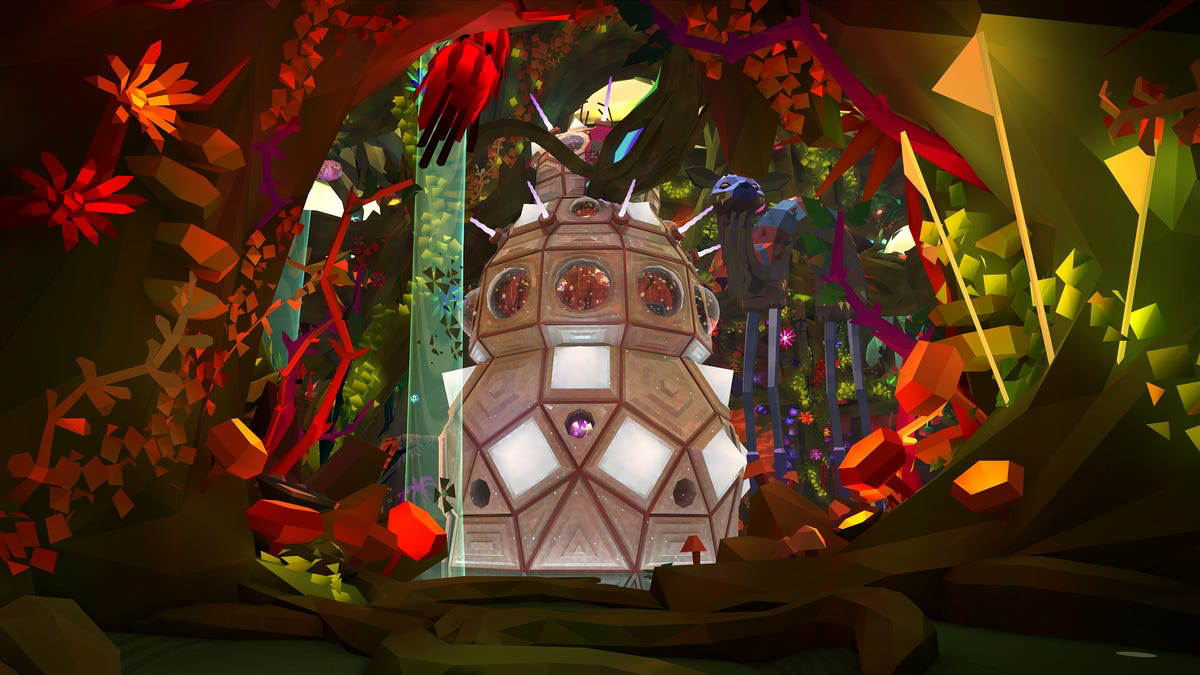
Walkabout Mini Golf: Meow Wolf — Mighty Coconut
$3.99 DLC/ $14.99 base game, Quest, PCVR, PSVR2, Available Now
Reese’s Peanut Butter Cups, indeed any peanut butter cup, is my favorite candy. As the old ad line goes: two great tastes taste great together.
Which is exactly what we have with Walkabout Mini Golf’s Meow Wolf expansion.
The latest course transliterates Numina, one of the largest parts of Meow Wolf’s Denver location, into the logic (and anti-logic) of Walkabout. For those who aren’t familiar with the base game, it’s pretty much the best thing you can do with friends in a VR headset. Mini Golf that manages to be whimsical and competitive (if you are so inclined) at the same time.
This collaboration between Mighty Coconut and Meow Wolf ends up feeling like a culmination and an evolution of all that the game developers have done before, expressed through a fantastic amalgamation of both teams artistic sensibilities. I spent most of my first playthorugh exclaiming “WHAT?” and giggling repeatedly at the twists and reveals that are packed into the space.
If you’re a fan of Walkabout you simply have to pick this up. It’s the best expansion yet. If you’re a fan of Meow Wolf with a headset, trust me when I say that investing in the base game is worth it, especially if you have far flung friends you want an excuse to spend time with.
There are so many incredible details throughout the course, and the two teams really lean into their spacemaking knowhow to create what feels like the most theme park like course for Walkabout yet. There are little details here and there which invite making up stories about what is going on, or finding someone who knows the deep Meow Wolf lore to explain the weirdness. Getting to walk about (ugh, sorry) the space and tell folks tales about what’s going on is one of the best parts of this. And as always: only one person in the party has to own the map for everyone to play. But you will want to own this yourself.
In short: Masterful.
— Noah J. Nelson, Founder & Publisher (Look for our interview with the devs this week)
Discover the latest immersive events, festivals, workshops, and more at our new site EVERYTHING IMMERSIVE, new home of NoPro’s show listings.
NoPro is a labor of love made possible by our generous Patreon backers. Join them today!
In addition to the No Proscenium website, our podcast, and our newsletters, you can find NoPro on Facebook, LinkedIn,YouTube, Twitter, Instagram, in the Facebook community Everything Immersive, and on our Patreon Backer exclusive Discord.



















Discussion